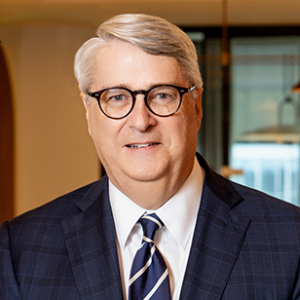A Speech on Tolerance
September 1, 2015 I Tennessee Bar Journal I William L. Harbison
I have just finished reading Summer for the Gods by Edward J. Larson. The 1997 book is about the Scopes trial that occurred in Dayton, Tennessee, in 1925. Of course, we are all familiar with the story, changed and fictionalized but made even more famous by the 1960 film Inherit the Wind. In contrast to the film, Larson provides a much more accurate and detailed account of the religious, intellectual and political background that set the stage for the trial, which many have called the Trial of the Twentieth Century. The intellectual debate that raged throughout the country pitted “modernism” against “fundamentalism.” Fundamentalism, championed by William Jennings Bryan, taught that religious values of the majority could and should be taught in schools. Its rise led to the passage of laws in a number of states, and much of the debate focused on Charles Darwin’s theory of evolution, which was perceived to challenge the religious beliefs of a majority of citizens. That all of this played out in sharp focus in Tennessee makes the story of even greater interest to me.
One detail of the background Larson provides, dealing with the choice of counsel for Mr. Scopes, jumped out at me and piqued my interest to know more. The American Civil Liberties Union, which had advertised that it would provide counsel to anyone wishing to challenge Tennessee’s new law against the teaching of the theory of evolution, was not pleased with Clarence Darrow’s insistence that he represent Mr. Scpes. Darrow was viewed as too agnostic, too radical and too divisive to serve as the face of the lawsuit. The ACLU wanted to place Charles Evans Hughes, a former presidential candidate (who narrowly lost election to Woodrow Wilson) and a former member of the United States Supreme Court, in charge of the defense. Hughes would not agree to participate in a defense that would be dominated by Darrow.
The outcome of the trial is so well known that it does not need to be retold, but the post-trial strategy again involved Charles Evans Hughes. After the defense lost the jury verdict, many wanted Charles Evans Hughes to argue the appeal. Hughes was a Republican, tapped by Theodore Roosevelt to run for President in 1916. Although Hughes was conservative by nature, he was also a believer in individual liberty and freedom of thought and expression. It so happened that Hughes was also president of the American Bar Association, and in his 1925 address to the ABA annual meeting, he delivered “a thundering attack on fundamentalist lawmaking” that “signaled his willingness to join the cause.” Larson’s book does not provide any of the text of that address, but I could not resist trying to locate and read Hughes’ speech. References were easy to find, and the speech includes the following passage:
The most ominous spirit of our times, as it seems to me, is the indication of the growth of an intolerant spirit. It is the more dangerous when armed, as it usually is, with sincere conviction. It is a spirit whose wrath must be turned away by the soft answers of a sweet reasonableness. It can be exorcised only by invoking the Genius which watched over our infancy and has guided our development — a good Genius — still potent let us believe — the American spirit of civil and religious liberty. Our institutions were not devised to bring about uniformity of opinion; if they had we might well abandon hope. It is important to remember, as has been well said, “the essential characteristic of true liberty is that under its shelter many different types of life and character and opinion and belief can develop unmolested and unobstructed.”
Hughes’ speech has been much praised. The editor of the ABA Journal commented at the time that his speech was “one of the most timely, useful, fearless, patriotic and able addresses ever made … by any public man of recent years in this country.” A September 1973 book review in the ABA Journal commented that Hughes “bluntly charged the members of the profession with the obligation of creating a positive atmosphere for the free exchange of widely divergent ideas.”
Hughes never got to argue the appeal of the Scopes case in the United States Supreme Court. The Tennessee Supreme Court disposed of the appeal by upholding the law against teaching evolution, but dismissing the conviction for technical reasons. There was nothing left to appeal. Hughes went on to serve on the United States Supreme Court again, this time as chief justice. He administered the oath of office to President Franklin Roosevelt three times.
Legal training teaches acceptance and study of “widely divergent ideas.” The bar, as much as any institution of which I am aware, is especially sensitive to the fact that its members hold different and sometimes opposing views. Yet, for generations, the bar has been able to maintain a vital and civil discourse on the issues that confront our profession. The exchange of divergent ideas can enrich, if it is done with a spirit of tolerance. I believe that Hughes got it right, and his 1925 speech to the American Bar Association, set against the background of the Scopes trial, is as fresh today as it was then.
















